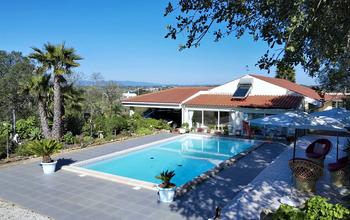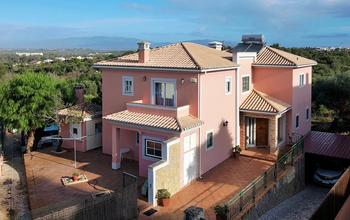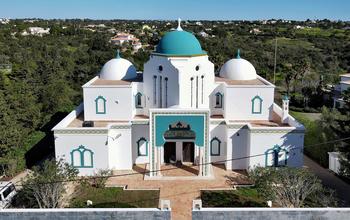Buying Property in Portugal
last updated: August 2025
This section is intended to provide useful and, as far as possible, up to date information on the property purchasing process and requirements in Portugal.
Selecting an Agent
When buying a property we suggest you look for an agent that:
- helps you clarify what you are looking for and shows you properties that match your requirements. An agent that does not follow the common 'spray-and-pray' approach to showing properties avoids wasting both your and the seller's valuable time. Be especially wary of buyer's agents, or property purchasing consultants, promising that they can show you absolutely any property.
- communicates clearly, in a timely fashion and most importantly, provides you with honest information about the properties that interest you.
- does not pressure you into making a decision you may regret later. For most people purchasing a home is a big and often stressful decision.
- accompanies you throughout the entire buying process. A decent agent will make sure everything is in place to get your offer accepted, but also realises that their job is only over when you are settled in your new home.
The Purchase Process
The following steps are a guideline to what happens after you have agreed a price for the purchase of your new home:
If you have not already chosen a solicitor, this is the time to do it. Solicitors usually charge around 1% of the purchase price for their services. Many buyers give their solicitor a signed Power of Attorney Procuração with specific powers to complete the sale on their behalf. This is easily done in a Notary's office and is recommended if you don't have the time to sign and deal with the bureaucratic part of the process in person.
The buyer’s solicitor reviews all of the documents for the property and draws up a promissory contract Contrato de Promessa de Compra e Venda. The promissory contract describes the property, identifies the owners and the buyers, outlines the terms of the purchase and the timeframe for completion of the sale (usually within 6 months).
The seller and his solicitor review the promissory contract and agree on the terms.
The buyer and seller (or their legal representatives) sign the promissory contract (usually in front of a notary) and at this time the buyer pays the deposit to the seller. This is normally 10%.
After signing, under Portuguese law, should the buyer withdraw from the purchase they lose the entire deposit they have paid. If it is the seller that pulls out of the deal then the seller has to pay double the amount of the deposit to the buyer.
Once the terms of the promissory contract have been met then the buyer and seller (or their legal representatives) meet again either in front of a notary or at a Casa Pronta office for Escritura Publica de Compra e Venda which is the final act of sale. The buyer pays the remaining amount to the seller and the seller hands over the keys to the property. The property is then registered in the name of the new owner with the Land Registry and the process is complete.
Purchase costs
The following costs are paid by the buyer on purchase of the property. The costs vary depending upon purchase price and type of property, and whether the home is to be your primary or secondary residence in Portugal.
-
IMT (Property Transfer Tax)
The transfer tax is based on the purchase price or patrimonial value (assessed value) of the property, whichever is the higher. It is calculated using the following rates and is payable at the local tax office Finanças or Casa Pronta office just before the final act of sale:
a. Permanent Habitation (Urban building):
Purchase Price (in €) Percentage Applied Amount (€) deducted from % < 104,261 0% 0.00 104,261 – 142,618 2% 2,085.22 142,618 – 194,458 5% 6,363.76 194,458 – 324,058 7% 10,252.92 324,058 – 648,022 8% 13,493.50 648,022 – 1,128,287 6% 0.00 > 1,128,287 7.5% 0.00 For example, a property purchased for €150,000 would pay €1,136.24 in IMT.
(150,000 x 5% - 6,363.76 = 1,136.24)b. Second Home (Urban building):
Purchase Price (in €) Percentage Applied Amount deducted from % < 104,261 1% 0.00 104,261 – 142,618 2% 1,042.61 142,618 – 194,458 5% 5,321.15 194,458 – 324,058 7% 9,210.31 324,058 – 621,501 8% 12,450.89 621,501 – 1,128,287 6% 0.00 > 1,128,287 7.5% 0.00 For example, a property purchased for €150,000 would pay €2,178.85 in IMT.
(150,000 x 5% - 5,321.15 = 2,178.85)c. Rural land:
A flat rate of 5% is applied.
d. Other (such as commercial property or building plot):
A flat rate of 6.5% is applied.
- Stamp Duty Imposto de Selo
0.8% of purchase price, payable at the local tax office Finanças or Casa Pronta just before the final act of sale.
- Notary fees and Land Registration fee
In total these come to approximately €750.
Documents Needed
To purchase a property in Portugal, whether as a resident or non-resident, you will need a Portuguese tax (fiscal) number número de contribuinte which can be obtained at the local tax office Finanças while you wait. You will need to provide proof of your identity as well as proof of address to apply for one. This fiscal number will also be needed to open a Portuguese bank account and for connecting water, electricity, telephone, etc.
Buyers will need to provide, as identification, either of:
- Portuguese Citizen card Cartão de Cidadão, or
- a Passport and Portuguese tax number numero de contribuinte
Your solicitor or lawyer will check that the property's documents are in order before advising you to proceed with the purchase. After the purchase the documents will be updated with your information.
You can view a list and description of property documents required for a property purchase in our seller's guide.
This information is provided as a guideline to clients and, to the best of our knowledge is factually correct at the time of writing. Laws in Portugal are constantly changing - it is advisable to check your personal situation with your financial advisor.
Hot Properties


